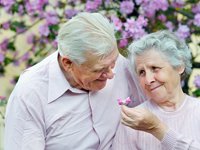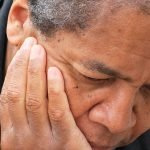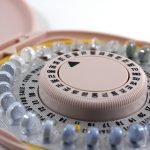If you’ve ever spent time around elderly people, you might have noticed a certain smell. Not the medicinal odor you can detect in a hospital or care facility, but just a faint scent that seems to emanate from the older members of society. You are not imagining that smell. New research actually confirms the strange fact that senior citizens of a certain age have a different body scent.
A study by researchers at the Monell Chemical Senses Center in Philadelphia found that the body scent produced by older people is distinct enough for others to pick out, but that old people smell is not necessarily a bad smell like the odor that usually accompanies sweating.1 In fact, the study discerned that for most of the subjects involved, the scent of an old person was definitely preferable to the scent emanating from people who range in age from 20 to 50.
The scientists had 41 subjects, from 20 to 95, sleep while wearing T-shirts that had absorbent nursing pads sewn into the armpit area for five consecutive nights. Each morning, the volunteer would put their nightshirt into a plastic bag and seal the top to inhibit bacterial growth. Each evening, the participants took a shower using unscented soap and shampoo products and washed their bedding in fragrance-free detergent so that no other scents would be picked up by the pads. The consumption of spicy food was prohibited as well, in order to keep bodily odors from being affected.
On the sixth morning of the experiment, the pads were removed from the T-shirts, quartered, and placed in airtight canisters with pieces of pads from others in the same age group. This was intended to create general age-related scents rather than focus on the particular odor of any one individual. Another 41 participants — completely different from those who slept in the shirts — were responsible for giving each canister a good sniff. These subjects then rated each canister for both the intensity of the odor and how pleasant or unpleasant it was to them.
It turned out that the pads worn by old people produced the most distinct smell, with volunteers able to match that odor to that of another canister of pads worn by the elderly more than twice as frequently as they could pair up younger or middle-aged scents. However, the good news for the senior citizens among us, that old people smell was not rated poorly at all. For the 75- to 95-year-old population, the scent was rated both less intense and less unpleasant than that of younger participants. Overall, the odor women produced was considered more pleasant than that of men, and the worst category for both intensity of smell and unpleasantness was men between the ages of 45 and 55. Men’s scents actually tended to improve with old age, possibly because changing hormone levels cause a drop in testosterone, which may reduce the amount of sweating for men.2
We know that the human sense of smell is generally much less highly developed than the olfactory sense in most species of animals. Bears, sharks, moths, and rats all have exceptional senses of smell.3 For practical purposes, humans usually use dogs when a keen nose is required, such as for sniffing out drugs. But while a human might never be capable of detecting a cache of hidden heroin about to be smuggled through an airport, our olfactory organs are not altogether pathetic, especially if nurtured. We can distinguish more than 10,000 smells, even when they are quite dissipated throughout the air.4 Also, research has established that not only can newborn babies pick their mother out based on her distinct smell, but mothers can identify an article of clothing worn by their infant as opposed to that worn by another infant just based on scent alone.5 And with practice, the capabilities of the human nose are actually quite amazing. Expert perfumers, for example, can identify hundreds, even thousands, of different odors after rigorous training.6
So, while it’s nice to think that we will not be producing an unpleasant odor as we age, it is still important to do what we can to keep our hormones in balance, since they are a primary factor in how we smell. Dropping levels of testosterone in both men and women may help us to not smell quite so pungently, but they can also negatively impact our energy, desire, muscle tone, and more. The trick, then, is not to “increase” testosterone levels as we age, but rather, to “unbind” the testosterone we already have so that more of it is available for use by the body. Thus, you get the best of both worlds — more testosterone effect and less odor. Bottom line: as we get older, it is important to consider beginning a hormone balancing program to help keep the body stable and healthy well into our golden years.
1 Khan, Amina. “Old people don’t smell so bad, study finds.” Los Angeles Times. 31 May 2012. Accessed 24 June 2012. <http://articles.latimes.com/2012/may/31/science/la-sci-old-person-smell-20120531>.
2 Sharma, Rasik. “Testosterone to be Blamed for the Sweat in Men.” Top News. 12 October 2010. Accessed 25 June 2012. <http://topnews.co.uk/214472-testosterone-be-blamed-sweat-men>.
3 “Animals with the best sense of smell in the world.” Largest Fastest Smartest. 18 January 2008. Accessed 25 June 2012. <http://largestfastestsmartest.co.uk/animals-with-the-best-sense-of-smell-in-the-world/>.
4 “Smell – Human Vs. Animal Smell.” Science.jrank. Accessed 25 June 2012. <http://science.jrank.org/pages/6197/Smell-Human-vs-animal-smell.html>.
5 Dewar, Gwen. “Wired for fast-track learning? The newborn senses of taste and smell.” Parenting Science. 2009. Accessed 25 June 2012. <http://www.parentingscience.com/newborn-senses.html>.
6 Marlowe Hood. “Expert sense of smell comes with practice.” Cosmos. 10 March 2011. (Accessed 26 June 2012.) http://www.cosmosmagazine.com/news/4125/expert-sense-smell-comes-with-practice











